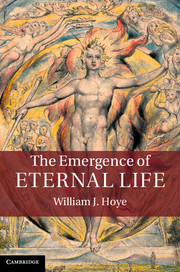Book contents
- The Emergence of Eternal Life
- The Emergence of Eternal Life
- Copyright page
- Dedication
- Contents
- Chapter One Introduction to the question
- Chapter Two Motivations fordisbelief in a life after death
- Chapter Three A justification of the traditional Christian belief in Eternal Life
- Chapter Four Eternal Life as thevision of God
- Chapter Five The human factor
- Chapter Six Life history as the predetermination ofEternal Life
- Chapter Seven Sensuality
- Chapter Eight The emergence of Eternal Life – a conclusion
- Bibliography
- Index
- References
Bibliography
Published online by Cambridge University Press: 05 October 2013
- The Emergence of Eternal Life
- The Emergence of Eternal Life
- Copyright page
- Dedication
- Contents
- Chapter One Introduction to the question
- Chapter Two Motivations fordisbelief in a life after death
- Chapter Three A justification of the traditional Christian belief in Eternal Life
- Chapter Four Eternal Life as thevision of God
- Chapter Five The human factor
- Chapter Six Life history as the predetermination ofEternal Life
- Chapter Seven Sensuality
- Chapter Eight The emergence of Eternal Life – a conclusion
- Bibliography
- Index
- References
- Type
- Chapter
- Information
- The Emergence of Eternal Life , pp. 278 - 289Publisher: Cambridge University PressPrint publication year: 2013



